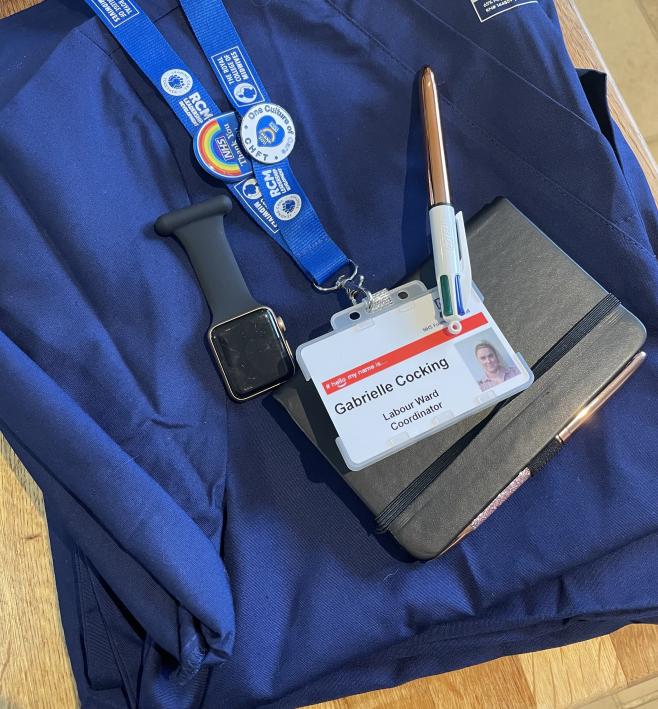You are here
My first labour ward coordinators post...by Gabby
12 May 2023
My first labour ward coordinators post (and how I got there!)

I knew I wanted to work in healthcare when I chose my A levels, I applied for medicine and midwifery and received an offer to study both at the University of Manchester. My A level results determined the course I would take, and I look back now at my 18-year-old self and wish I could help her understand that everything happens for a reason. I am so proud of my career in midwifery and I absolutely LOVE being a midwife. If I could make those choices again, they would be very different, and there would be no gruelling application to medicine. Although an undoubtedly amazing career choice – I was born to be a midwife. My mother and mother-in-law (who has been in my life since I was 12 years old) both trained as midwives, and I now know with confidence I was meant to be a midwife too.
My career has spanned many areas of midwifery; a rotational post, community post, core labour ward, delivery, recovery and postnatal (LDRP) ward midwife, and most recently a labour ward coordinator. I knew in 2016 when I returned from my first maternity leave that I wanted to be a labour ward coordinator and I spent the next five years working towards this. My breadth of experience gave me valuable experience and transferable skills when I stepped into the role.
To prepare myself for the role I secured a core post on LDRP to focus on my intrapartum care and skills. I attended related courses including cardiotocography (CTG) masterclasses, maternal acute illness management, newborn life support training, and a quality improvement (QI) programme. I began teaching clinical skills at a local university and sought out other opportunities for leadership roles, such as QI projects. My passion was and still is around psychological safety in the workplace. Two books I found invaluable are ‘The Fearless Organisation’ by Amy Edmondson, and ‘Nurturing Maternity Staff’ by Jan Smith. Alongside this, I found the King’s Fund online course ‘An introduction to leading with kindness and compassion in health and social care’ to be incredibly insightful. The leaders I had as a band 5 and 6 midwife also influenced my style of leadership and the kind of coordinator I wanted to be.
I went into my first coordinating role with passion, determination, and a plan! I wanted to provide safe care, and I wanted to be a kind, compassionate and approachable leader. I wanted staff and students to feel safe and happy on my shifts and I wanted them to see my passion for education. I knew that if I could role model this behaviour, despite the demands of the job and my own anxieties, it would help support them to provide safe care, going home satisfied and proud. 
A massive part of the coordinators role that is often underestimated and should be focused on more, is their responsibility to advocate for their team. Coordinators are the leaders that have the first-hand experience of the pressures of the clinical environment, the knowledge of organisational challenges, and the opportunity to use their leadership position to influence other members of the team. This bridge between the clinical staff and non-clinical leadership teams should be utilised.
I loved the time I spent coordinating – getting to know many different families on a shift and supporting my colleagues, working well as a team, and providing safe care. It was and is an amazing career choice. My advice to anyone thinking about their career progression is to decide and become the type of leader you want to be before you step up. Preparation for the intricacies of leadership is essential and there is much more to coordinating than allocation and multi-disciplinary communication. In my opinion, your leadership style is your most important attribute as a coordinator.